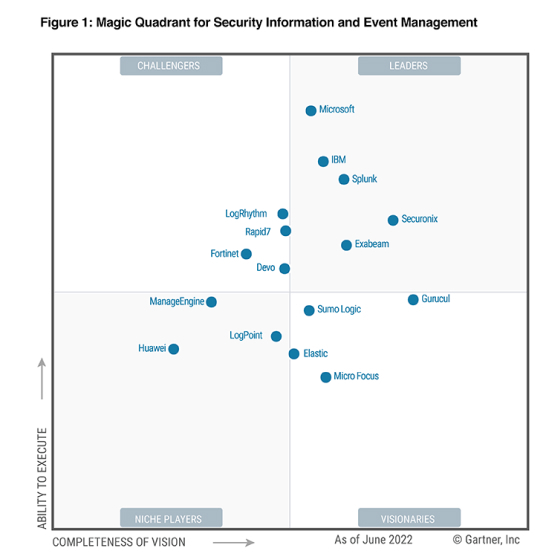
Get the report
MoreApril 4, 2023

DevOps teams are used to working with data that is spread out across lots of different systems and environments. In organizations that have achieved tight collaboration with security teams to transition to DevSecOps, this is even more true!
Log management is part of how all these teams keep track of information and make vital business decisions. It’s important to take a moment to understand what is meant by log management. Essentially, numerous log files are generated automatically by lots of different hardware and users. This creates an ever-growing amount of data for teams to monitor. Ideally, log management centralizes logs in one platform and structures them all in the same way.
Once logs are centralized and structured, they can be stored based on tiers of relevance, compliance mandates and need for analysis. Subsequently, log analytics allow the most benefit and insight possible to be extracted from these records on an ongoing basis.
There are typically four steps in log management processes.
Log collection and parsing
DevSecOps teams today cannot operate in silos, and log management must match the way teams work. The first step in log management is getting all the logs into one place. But logs coming from different sources are going to be formatted in different ways and even different file types. As logs are aggregated, they must also be parsed into the same structured format.
Log centralization and indexing
With logs coming from so many different places, it is critical to centralize them to not miss important insights or patterns that may emerge when the data is unified. As part of this process, logs will be tagged and indexed based on their contents. Some logs will need to be kept for compliance purposes only, while others are essential for insights and product improvements. Indexing may reveal opportunities for resource conservation, allowing less essential data to be stored more affordably than data that needs to be available in real time. If this sounds like a lot of work, don’t worry—it can all be powered by automation.
Log analysis and monitoring
Like log centralization and parsing, log analysis can also be carried out by powerful algorithms. These tools are trained to recognize patterns and identify correlations. This analysis is constantly being performed in real-time, and the outputs are monitored by the system. When an anomalous or suspicious event occurs, alerts can be sent in real-time. When users have a sense of what they are looking for, log queries make it possible to find a single event from among millions of records.
Log reporting and dashboarding
Opportunities and alerts that result from log management and analysis should be clearly communicated by the log management tool. Simple dashboards make it easy to see any performance issues and map them to potential causes in the system. Reporting for compliance or communicating with stakeholders should also be easy to achieve.
Logging is the tracking and storing of data about an application or system. Logs contain information about application performance, access, changes and the impact of changes. Today, many logs are automatically generated by operating systems, servers or databases, among other sources. That means for DevOps, logging has transitioned from a manual process to something a system can mostly do on its own.
The primary importance of logging in software development and operations is the record it provides. Whenever a system is accessed or edited, a log is generated. Most of these logs will be mundane activities by users. But when an error or threat occurs, logs are the breadcrumbs that development, operations and security teams can follow to uncover the root of the issue.
DevOps teams have the vital tasks of finding issues earlier (aka "shift left"), discovering anomalies, reducing Mean Time To Recovery (MTTR), optimizing resource usage, improving user experience, and understanding user behavior. With proper log management, DevOps teams have the data they need to accomplish these goals. And that’s not to mention the benefits of increased insight into errors and security risks, better use of network resources and improved compliance!
The best log management tool for DevOps helps you easily collect, parse and organize your logs to deliver insight into real-time application performance, infrastructure and resource management as well as security on a single, scalable platform. Your DevOps teams will be accelerated by real-time analytics that lead to actionable insights.
Read more about how Sumo Logic can help your DevOps teams leverage log management and analytics to empower observability and security.
Reduce downtime and move from reactive to proactive monitoring.
Build, run, and secure modern applications and cloud infrastructures.
Start free trial